Two financial market traders who were jailed for manipulating benchmark interest rates had their convictions quashed at the Supreme Court today.
Former Citigroup and UBS trader Tom Hayes was found guilty of multiple counts of conspiracy to defraud over manipulating the London Inter-Bank Offered Rate (Libor) between 2006 and 2010.
Mr Hayes, who was known by colleagues as ‘Rain Man’ because of his obsessive personality, had been the first trader to be convicted of rigging the Libor rate.
Carlo Palombo, ex-vice president of euro rates at Barclays bank, was found guilty of conspiring with others to submit false or misleading Euro Interbank Offered Rate (Euribor) submissions between 2005 and 2009.
The Court of Appeal dismissed appeals from both men in March last year. They then took their cases to the Supreme Court.
This morning, the panel of five justices found there was ‘ample evidence’ for a jury to convict the two men had it been properly directed, but they had not.
In an 82-page judgment, with which Supreme Court president Lord Reed, Lords Hodge and Lloyd-Jones and Lady Simler agreed, Lord Leggatt said: ‘That misdirection undermined the fairness of the trial.’
The jury direction errors made both convictions unsafe, Lord Leggatt said.
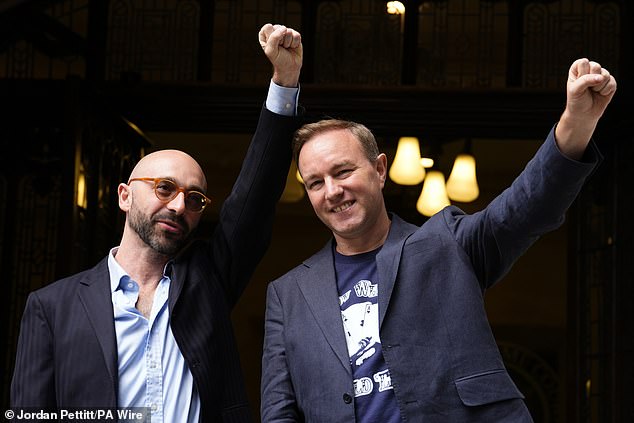
Former traders Carlo Palombo and Tom Hayes outside the Supreme Court in London today
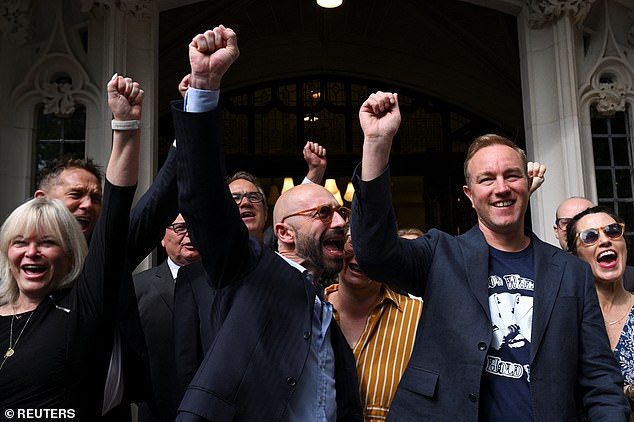
Former Barclays trader Carlo Palombo (left) and Former UBS and Citigroup trader Tom Hayes (right) celebrate after their conviction was overturned at the Supreme Court in London today
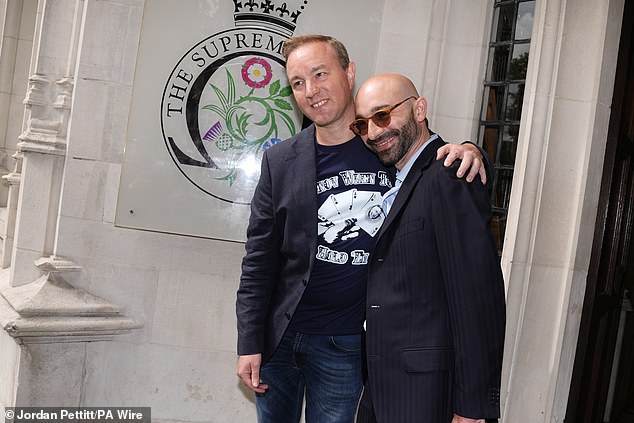
Former traders Tom Hayes and Carlo Palombo outside the Supreme Court in London today
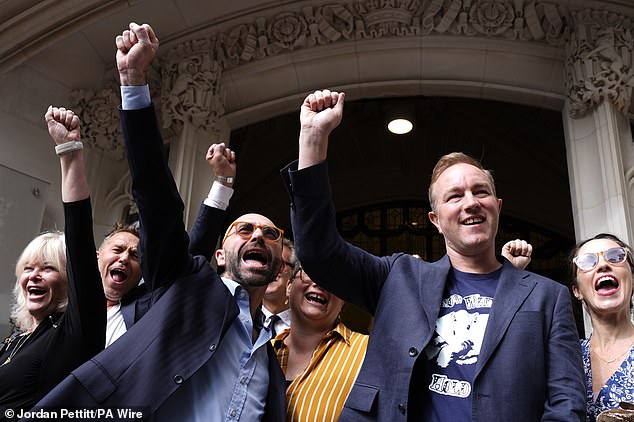
Carlo Palombo and Tom Hayes after their conviction was overturned at court in London today
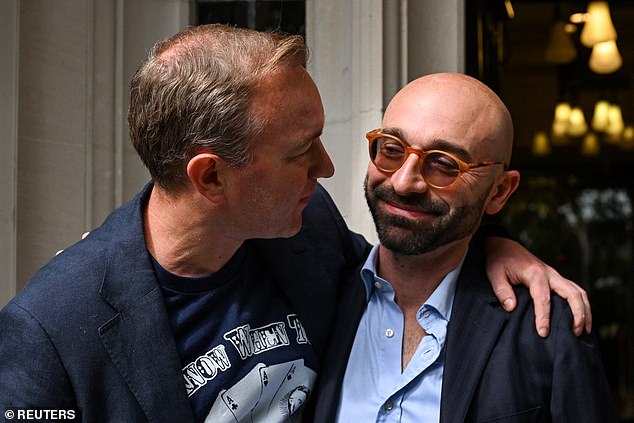
Former traders Tom Hayes and Carlo Palombo outside the Supreme Court in London today
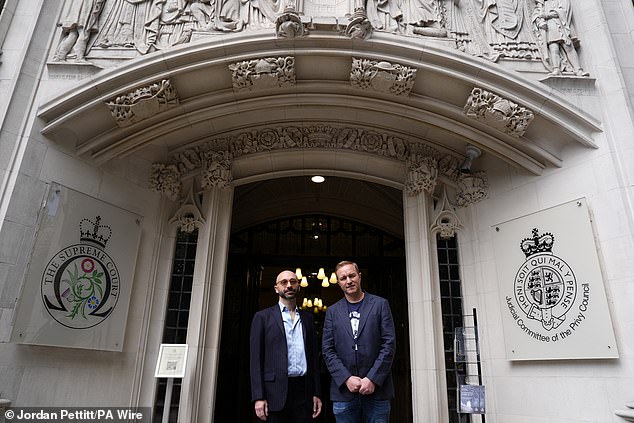
Former traders Carlo Palombo and Tom Hayes outside the Supreme Court in London today
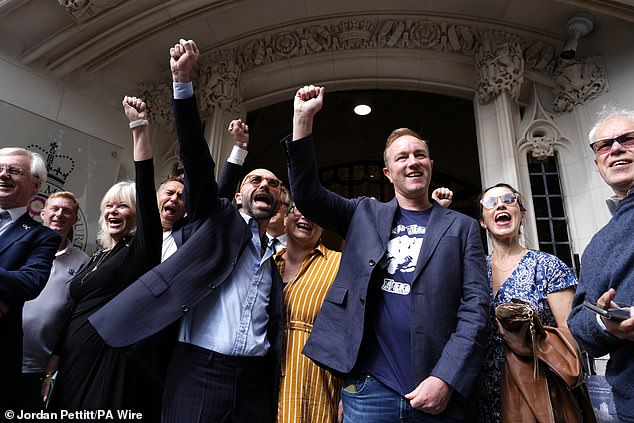
Carlo Palombo and Tom Hayes after their conviction was overturned at court in London today
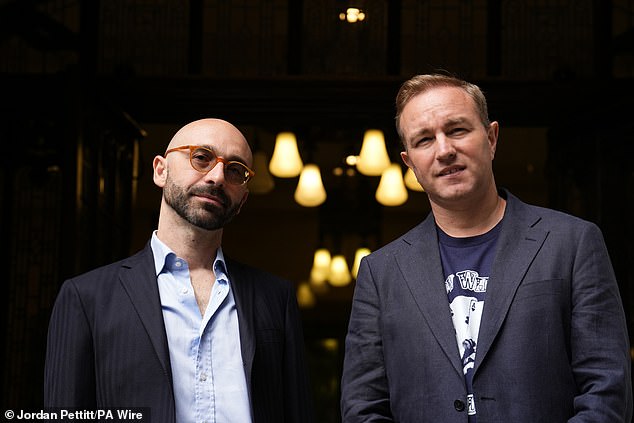
Former traders Carlo Palombo and Tom Hayes outside the Supreme Court in London today
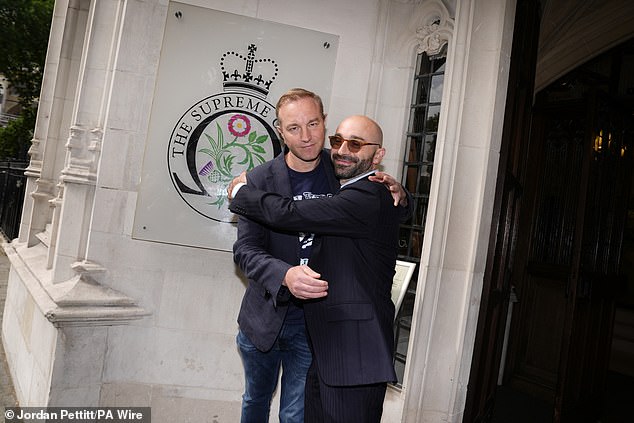
Former traders Tom Hayes and Carlo Palombo outside the Supreme Court in London today
He added: ‘Mr Hayes was entitled to have his defence to the allegation that he agreed to procure false submissions as well as his denial that he had acted dishonestly left fairly to the jury.
‘He was deprived of that opportunity by directions which were legally inaccurate and unfair.
‘It is not possible to say that, if the jury had been properly directed, they would have been bound to return verdicts of guilty.
‘The convictions are therefore unsafe and cannot stand.’
Mr Hayes was jailed for 14 years after his conviction in 2015, which was later lowered to 11 years after an appeal, while Mr Palombo was jailed for four years in 2019.
Lord Leggatt continued: ‘When the flaws in the directions given at Mr Palombo’s trial are considered in combination, it cannot safely be assumed that, without them, the jury would still have been bound to convict Mr Palombo.
‘Thus, his conviction also cannot stand.’
He added: ‘Accordingly, both appeals should be allowed.’
Mr Hayes celebrated outside the court alongside his legal team and Tory MP David Davis.
Speaking outside the entrance, he said: ‘I’ve had 10 years to think about what I was going to say and it has all gone.
‘It feels very surreal, a bit like my conviction, like it’s not really happening to me.
‘I’m just very grateful to all the justices who heard the appeal, very grateful to all the people who have supported me, strangers and friends alike.
‘My faith in the criminal justice system at times was likely destroyed and it has been restored by the justices from the Supreme Court today and I think it’s only right that more criminal appeals should be heard at this level.’
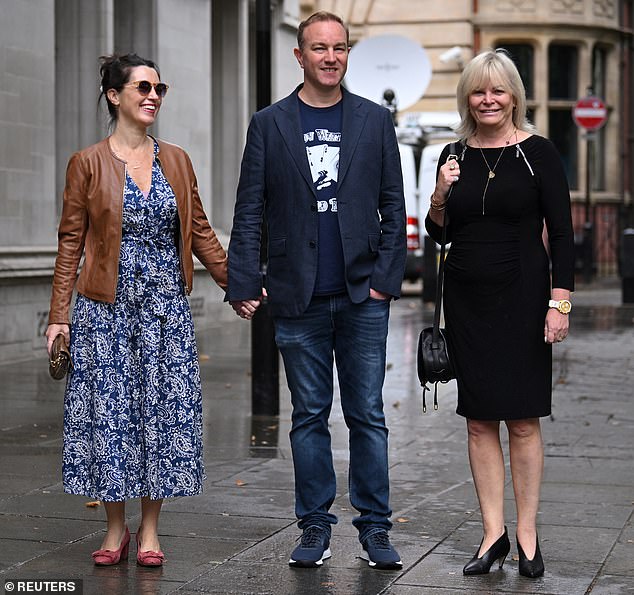
Tom Hayes (centre), a former Citigroup and UBS trader, outside London’s Supreme Court today
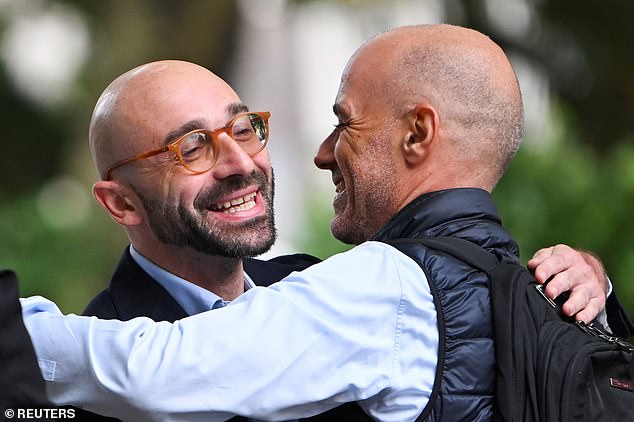
Carlo Palombo (left), ex-vice president of euro rates at Barclays, at the Supreme Court today
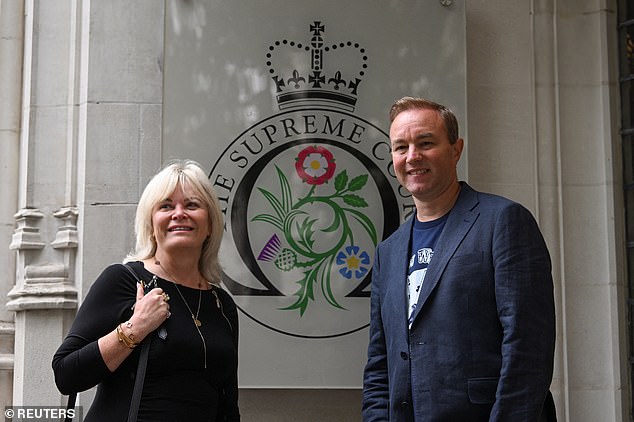
Tom Hayes and his lawyer Karen Todner arrive at the Supreme Court in London this morning
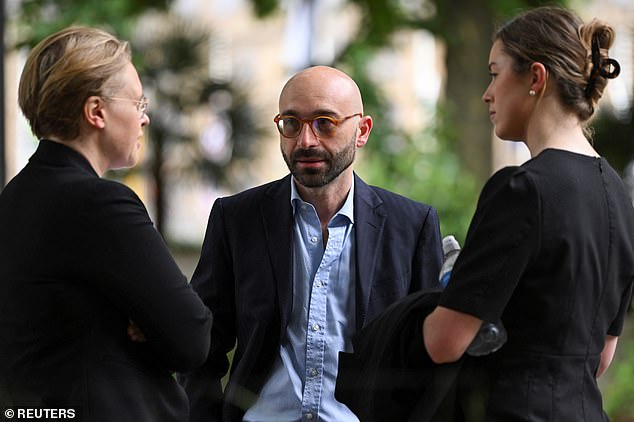
Former trader Carlo Palombo (centre) outside the Supreme Court today ahead of the ruling
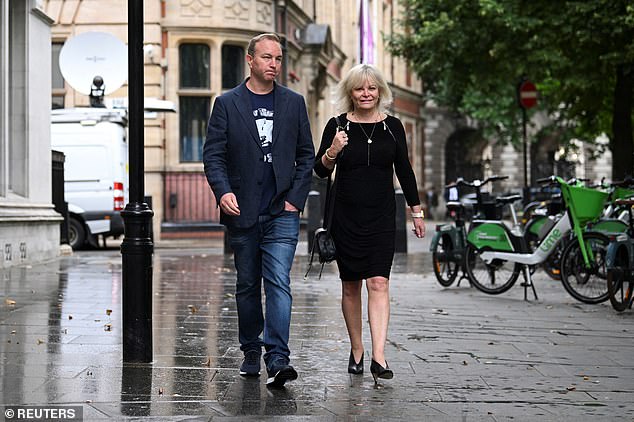
Tom Hayes and his lawyer Karen Todner arrive at the Supreme Court in London this morning
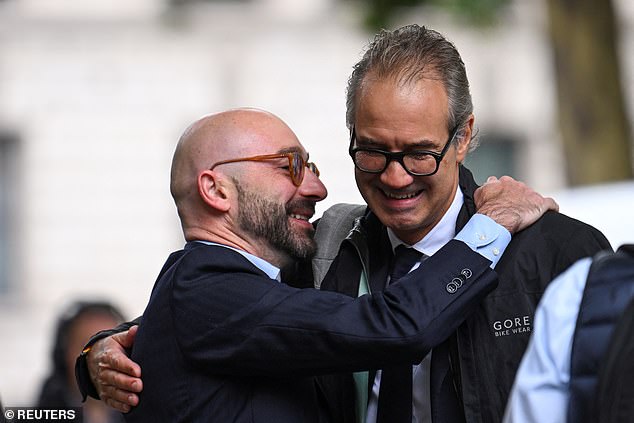
Carlo Palombo, ex-vice president of euro rates at Barclays, hugs a man outside court today
Karen Todner, part of Mr Hayes’s legal team, said it has taken ‘far too long’ for the Supreme Court decision to arrive, quashing his conviction.
Speaking outside the court’s entrance, she said: ‘The Supreme Court has declared that the Tom Hayes trial was unfair. We’re all obviously delighted by this decision.
‘Tom was deprived of the opportunity to put his defence to the allegations against him at his trial and what took place was unfair.
‘It has taken far too long to have this conviction overturned. We’ve taken far too long to get here.
‘But now we are here and we’re delighted that we’ve won.’
Supporters of Mr Hayes gave three cheers for justice afterwards.
A spokesperson for the Serious Fraud Office (SFO) said it would not be seeking a retrial.
In a statement issued after the judgment, it said: ‘Our investigation led to nine convictions of senior bankers for fraud offences, with two of these individuals pleading guilty and seven found guilty by juries.
‘This judgment has determined that the legal directions given to the jury at the conclusion of trial were incorrect in Hayes’ and Palombo’s trials and for that reason their convictions have today been found unsafe.
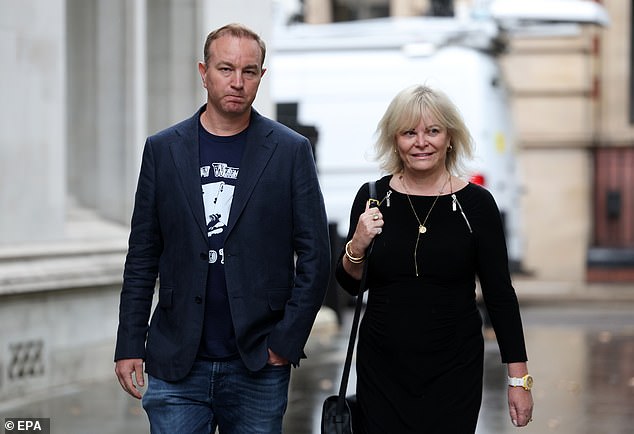
Tom Hayes and his lawyer Karen Todner arrive at the Supreme Court in London this morning
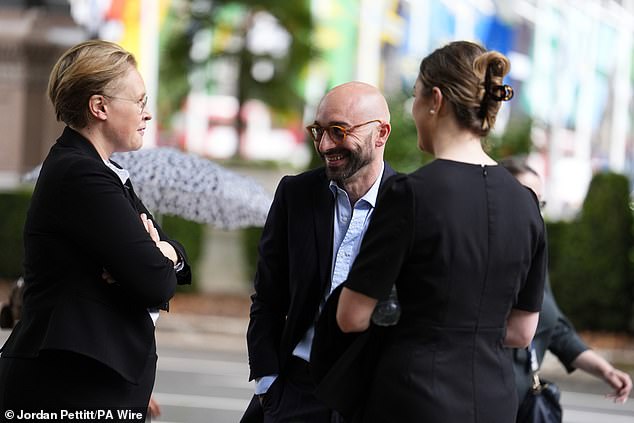
Carlo Palombo speaks with his legal team outside the Supreme Court in London today
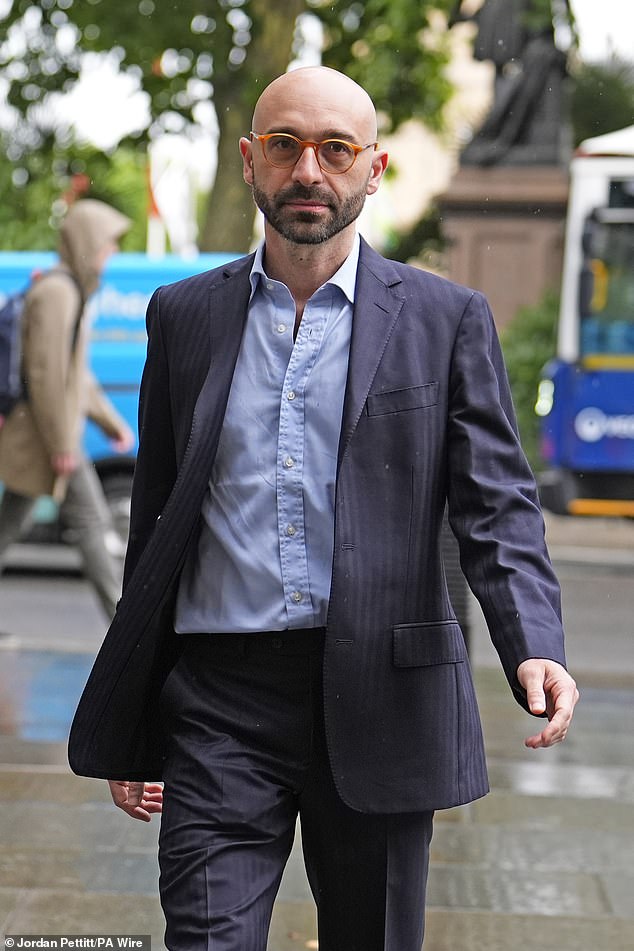
Carlo Palombo, pictured today, had been convicted of interest rate benchmark manipulation
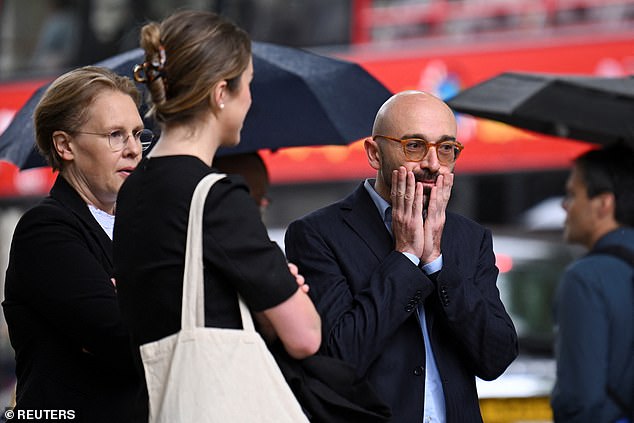
Former trader Carlo Palombo (right) outside the Supreme Court today ahead of the ruling
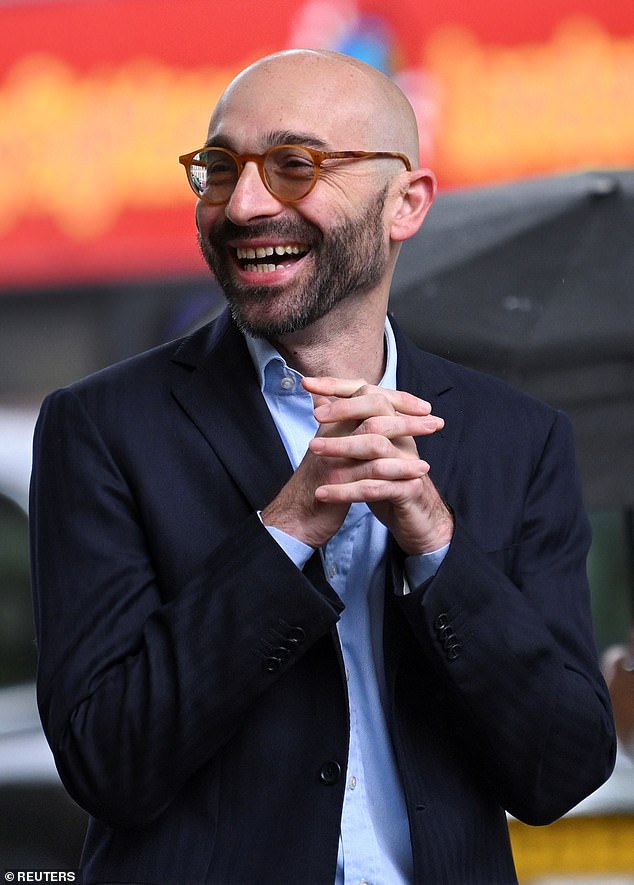
Former Barclays trader Carlo Palombo was appealing his conviction for manipulating the rate
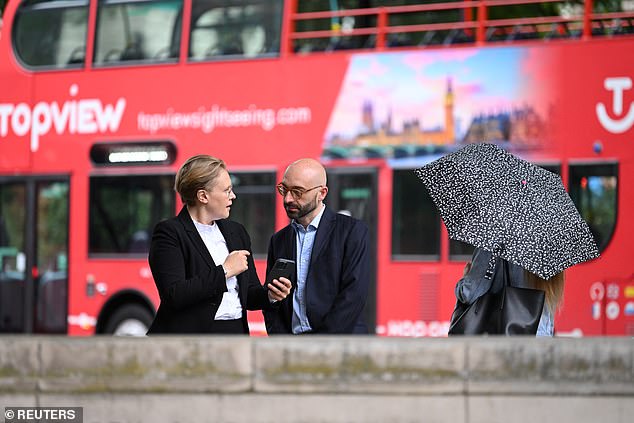
Former Barclays trader Carlo Palombo speaks with a member of his legal team in London today
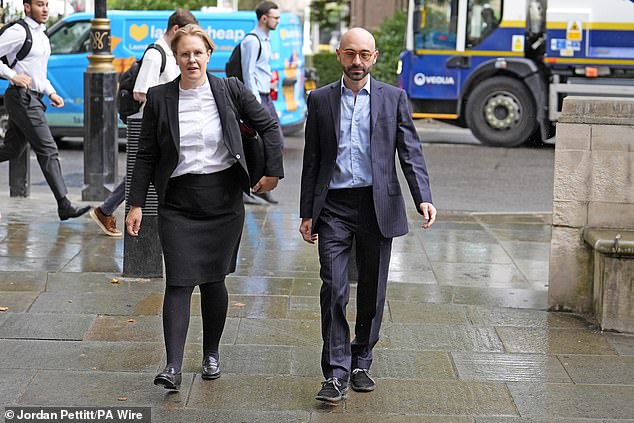
Former trader Carlo Palombo (right) outside the UK Supreme Court in London this morning
‘We have considered this judgment and the full circumstances carefully and determined it would not be in the public interest for us to seek a retrial.’
The Libor rate was previously used as a reference point around the world for setting millions of pounds worth of financial deals, including car loans and mortgages.
It was an interest rate average calculated from figures submitted by a panel of leading banks in London, with each one reporting what it would be charged were it to borrow from other institutions.
Euribor was created along with the euro currency in 1999 as a benchmark rate of interest for transactions in euros.
In 2012, the SFO began criminal investigations into traders it suspected of manipulating Libor and Euribor.
Mr Hayes was the first person to be prosecuted by the SFO, who opposed his and Mr Palombo’s appeals at the Supreme Court.
The SFO brought prosecutions against 20 individuals between 2013 and 2019, seven of whom were convicted at trial, two pleaded guilty and 11 were acquitted.
Mr Hayes had also been facing criminal charges in the United States but these were dismissed after two other men involved in a similar case had their convictions reversed in 2022.












